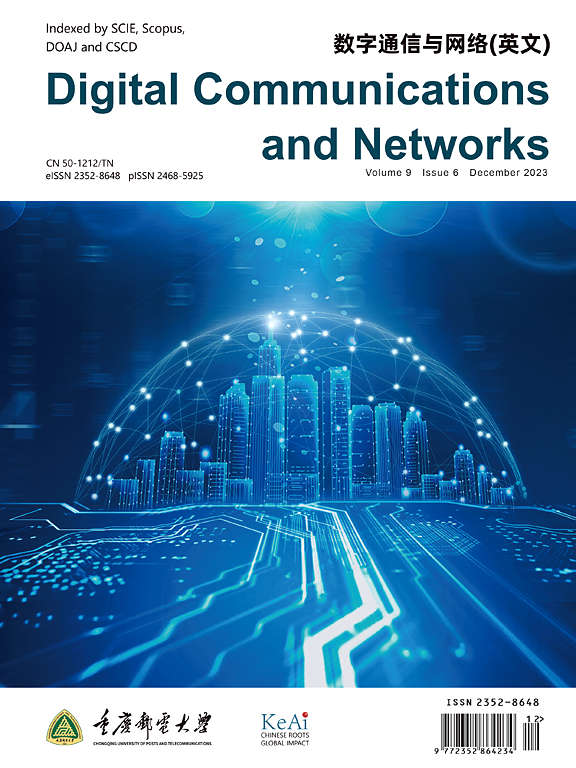DB-FL: DAG区块链支持的广义联邦辍学学习
IF 7.5
2区 计算机科学
Q1 TELECOMMUNICATIONS
引用次数: 0
摘要
为了保护用户隐私和数据安全,联邦学习(FL)与区块链的融合已成为新兴的研究热点。然而,传统区块链有限的吞吐量和较高的通信复杂性限制了其在大规模FL任务中的应用,同步的传统FL也会降低训练效率。为了解决这些问题,在本文中,我们提出了一种支持有向无环图(DAG)区块链的广义联邦辍学(FD)学习策略,该策略可以在保证模型泛化的同时提高FL的效率。具体而言,由多个边缘服务器维护的DAG将保证数据的安全性和可追溯性,并提出基于声誉的提示选择算法(RTSA)来减少区块链共识延迟。其次,采用智能设备之间的半异步训练提高训练效率,并提出基于声誉的FD技术防止模型过拟合。此外,还引入了混合资源优化分配(HORA)算法,使网络延迟最小化。最后,仿真结果验证了所提算法的有效性和优越性。本文章由计算机程序翻译,如有差异,请以英文原文为准。
DB-FL: DAG blockchain-enabled generalized federated dropout learning
To protect user privacy and data security, the integration of Federated Learning (FL) and blockchain has become an emerging research hotspot. However, the limited throughput and high communication complexity of traditional blockchains limit their application in large-scale FL tasks, and the synchronous traditional FL will also reduce the training efficiency. To address these issues, in this paper, we propose a Directed Acyclic Graph (DAG) blockchain-enabled generalized Federated Dropout (FD) learning strategy, which could improve the efficiency of FL while ensuring the model generalization. Specifically, the DAG maintained by multiple edge servers will guarantee the security and traceability of the data, and the Reputation-based Tips Selection Algorithm (RTSA) is proposed to reduce the blockchain consensus delay. Second, the semi-asynchronous training among Intelligent Devices (IDs) is adopted to improve the training efficiency, and a reputation-based FD technology is proposed to prevent overfitting of the model. In addition, a Hybrid Optimal Resource Allocation (HORA) algorithm is introduced to minimize the network delay. Finally, simulation results demonstrate the effectiveness and superiority of the proposed algorithms.
求助全文
通过发布文献求助,成功后即可免费获取论文全文。
去求助
来源期刊

Digital Communications and Networks
Computer Science-Hardware and Architecture
CiteScore
12.80
自引率
5.10%
发文量
915
审稿时长
30 weeks
期刊介绍:
Digital Communications and Networks is a prestigious journal that emphasizes on communication systems and networks. We publish only top-notch original articles and authoritative reviews, which undergo rigorous peer-review. We are proud to announce that all our articles are fully Open Access and can be accessed on ScienceDirect. Our journal is recognized and indexed by eminent databases such as the Science Citation Index Expanded (SCIE) and Scopus.
In addition to regular articles, we may also consider exceptional conference papers that have been significantly expanded. Furthermore, we periodically release special issues that focus on specific aspects of the field.
In conclusion, Digital Communications and Networks is a leading journal that guarantees exceptional quality and accessibility for researchers and scholars in the field of communication systems and networks.
 求助内容:
求助内容: 应助结果提醒方式:
应助结果提醒方式:


